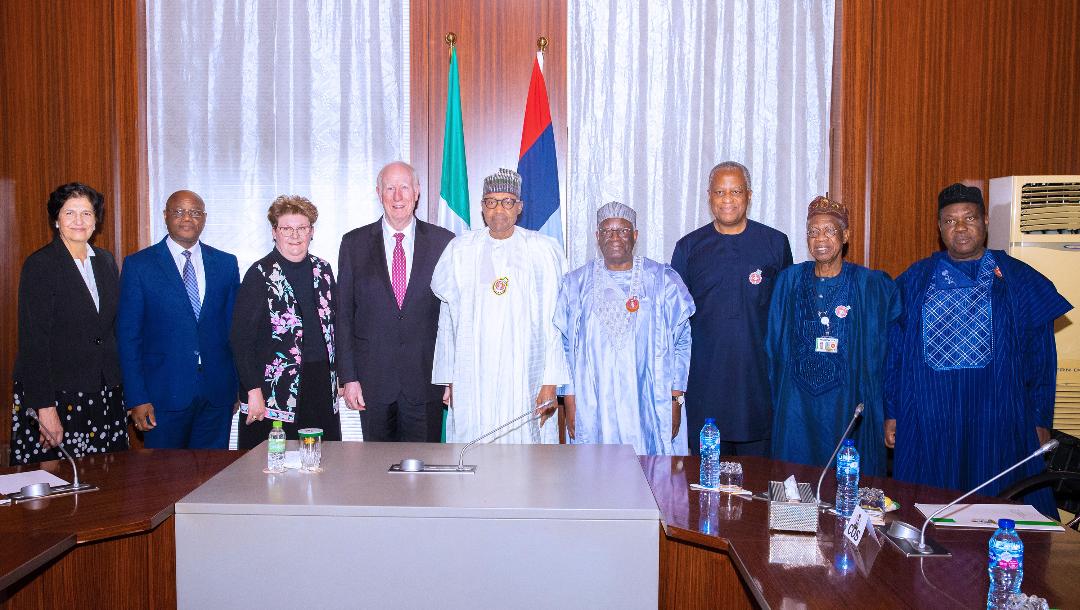NEWS
The Pros and Cons of Nigeria’s Multi-Party System: A Comprehensive Guide

Nigeria has a multi-party system where political parties compete for power through regular elections.
The system was adopted in 1999 after a long period of military rule, with the aim of promoting democracy and ensuring fair representation of the people. The multi-party system has its advantages and disadvantages, which have shaped the country’s political landscape over the years. In this comprehensive guide, we will explore the pros and cons of Nigeria’s multi-party system, and the challenges and opportunities it presents.
The Federal Republic of Nigeria has a multi-party system. As of 2023, the largest by National Assembly seats are the All Progressives Congress (APC) and the People’s Democratic Party (PDP). There are also a number of smaller parties, the largest of which are All Progressives Grand Alliance (APGA) and Young Progressives Party (YPP) as well as others including the African Democratic Congress (ADC), People’s Redemption Party (PRP), Social Democratic Party (SDP), and eleven other parties registered with the Independent National Electoral Commission.
Advantages of Nigeria’s Multi-Party System:
Representation: The multi-party system allows for different groups and interests to be represented in government. Parties can form around specific issues and ideologies, giving citizens a choice of who to vote for based on their values and beliefs.
Accountability: A multi-party system ensures that the ruling party is accountable to the people. The opposition parties can hold the government accountable by questioning policies, scrutinizing budgets, and calling for investigations into corruption.
Competition: With multiple parties vying for power, there is healthy competition to win elections. Parties are forced to engage with voters and address their concerns in order to win their support. This can lead to better governance and policy-making.
Stability: A multi-party system can also promote political stability by preventing one party from monopolizing power. With different parties having a chance to govern, the risk of political instability or unrest is reduced.
Diversity: Nigeria’s multi-party system promotes diversity and inclusivity. Political parties can be formed based on regional, ethnic, or religious affiliations, giving a voice to marginalized groups.
Disadvantages of Nigeria’s Multi-Party System:
Fragmentation: The multi-party system can lead to fragmentation and instability, especially if parties are formed based on narrow interests or personal ambitions. This can lead to a lack of consensus and cooperation in government, which can hinder development and progress.
Corruption: The competition for power can also lead to corruption and unethical behavior. Parties may resort to buying votes, rigging elections, or using violence to gain an advantage over their opponents.
Polarization: A multi-party system can also polarize society by emphasizing differences rather than commonalities. This can lead to a lack of unity and cohesion, which can make it difficult to address national challenges.
Ineffectiveness: With so many parties and interests involved, the multi-party system can be ineffective in delivering on its promises. Parties may prioritize their own agendas over the national interest, leading to a lack of progress and development.
Cost: Finally, the multi-party system can be costly, both in terms of time and resources. Elections can be expensive, and the need for coalitions and alliances can make governance more complex and time-consuming.
FAQs:
Why did Nigeria adopt a multi-party system?
Nigeria adopted a multi-party system in 1999 to promote democracy and ensure fair representation of the people. It was seen as a way to move away from the authoritarian rule that characterized the country for many years.
How many political parties are there in Nigeria?
As of 2021, there are over 80 registered political parties in Nigeria, although not all of them are active or have representation in government.
What are some of the challenges of Nigeria’s multi-party system?
Some of the challenges of Nigeria’s multi-party system include fragmentation, corruption, polarization, ineffectiveness, and cost.
Nigeria’s multi-party system has its advantages and disadvantages, which have shaped the country’s political landscape over the years. While the system promotes representation, accountability, and healthy competition, it also poses challenges such as fragmentation, corruption, and polarization. Despite these challenges, Nigeria’s multi-party system remains a vital component of the country’s democratic process. It provides opportunities for citizens to participate in governance, hold leaders accountable, and shape the country’s future. By understanding the pros and cons of the multi-party system, citizens can make informed decisions and contribute to a vibrant and inclusive political environment. As Nigeria continues to evolve and grow, it is essential to ensure that the multi-party system is strengthened and improved to better serve the needs and aspirations of its people.